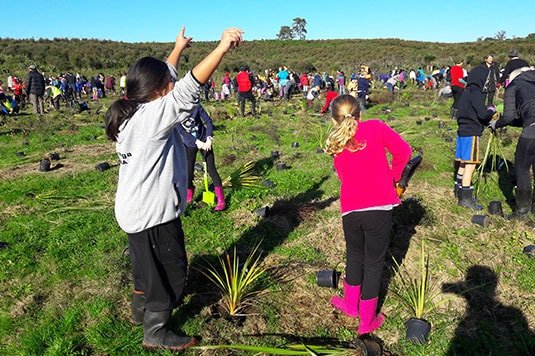The PCaN research team is based at the University of Waikato but includes institutions, researchers, iwi and communities across New Zealand.
Their goal is to improve the quality of life, health and economic wellbeing in New Zealand’s cities and towns through advanced understanding of urban ecology and the creation of flourishing natural environments.
Project lead Professor Bruce Clarkson says 87% of New Zealanders live in cities and these areas provide important opportunities for re-connecting people to our natural heritage.
The PCaN team has travelled the country, putting on workshops to connect local communities with national research. So far, they have visited Tauranga, Napier, Invercargill, Hamilton and most recently Christchurch.
BioHeritage was proud to co-host their Christchurch workshop last week, which saw discussions on everything from soil life, to epiphytes (plants that grow at the tops of trees) and green space culture.
PCaN manager Catherine Kirby says the broad scope of research is what their programme is all about.
“By sharing different perspectives and expertise we can gain a shared viewpoint, from which we can tackle curly urban restoration challenges.
“The workshops are important for stimulating discussion and sharing ideas to create clever urban restoration solutions. We love to see the excitement created amongst the attendees and they realise all of the opportunities there are to work together.”
The PCaN team have three workshops left of their nation-wide tour: Dunedin, New Plymouth and Wellington. Follow them on Facebook or Twitter to keep up-to-date with their research and workshop dates.
PCaN studies closely align with the BioHeritage goal of empowering every New Zealander to become kaitiaki (guardians) of their natural environment.
